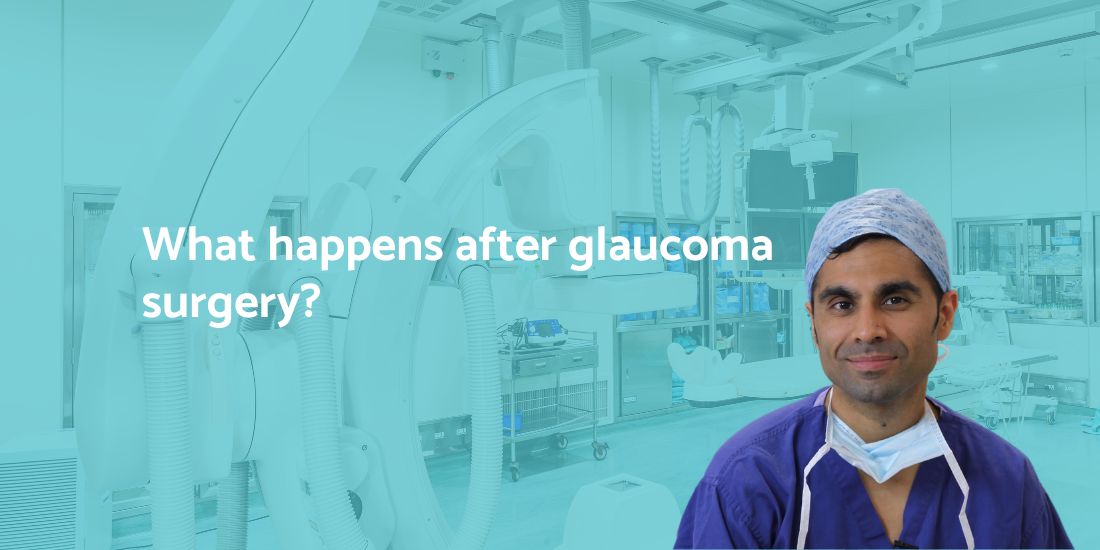What happens after glaucoma surgery?
Unlike cataract surgery, glaucoma surgery very rarely improves vision. Rather, it’s intended to stabilise vision and reduce the risk of future sight loss by reducing the pressure within the eye. This can be done in many different ways: essentially either reducing fluid into the eye or increasing fluid leaving the eye.
In this brief article, Gurjeet Jutley takes a look at what you can expect after your surgery has been completed
What to expect after your glaucoma surgery
The length of time it can take for you to recover will depend a great deal on the type of surgery that you have and your overall health.
Quicker recovery periods may last as little as around 3 weeks, but a slower recovery could take months.
Your sight
The vision may become blurred and this can last for a few days or in some cases, a few weeks. It’s important to monitor this as you should see a steady improvement until you reach the point that your sight is stabilised.
If you experience any sudden loss of eyesight during this period it’s important that you report this immediately as it can be a sign of an infection or a bleed. Whilst rare, it is grave and needs management rapidly.
Physical symptoms
Any surgical procedure may leave you with some mild pain and discomfort immediately afterwards. Over-the-counter pain medications may be required and it should ease up within a few days. Any extreme pain should be reported immediately.
You may also experience a degree of irritation and discomfort in the eye for a few days, as well as itching. You may find that your eyes water or tear up more than normal during the recovery period. This will be most noticeable during the early stages of your recovery, easing off over time. It’s also common for swelling and redness to develop around your eyes for a few days following the procedure.
Getting back to normal
Post procedure, it’s important to pace yourself and to remember that you will need some time to recover. This means taking more time to relax and recuperate.
Avoid any vigorous exercise and slowly reintroduce physical activity over a number of days. Going for a short gentle walk is more advisable than a workout in the gym.
You may also want to take some time off from activities that place a strain on your eyes such as reading and writing. Your vision may be blurry for a few days making tasks like these more difficult
Driving should be avoided for a week or so, but this will depend on how quickly your vision returns to normal and the underlying health of the eye. It may be helpful to stock up on groceries and other household essentials before surgery. Although it’s possible to return to work within days of glaucoma surgery, it’s usually sensible to take a week or longer off work to recover fully.
Taking care of your eyes
You shouldn’t touch or rub your eyes if you feel any discomfort after surgery. Doing so can result in your eye taking longer to heal and in some cases may even cause damage. Make sure you wash your hands with soap and warm water before using eye drops.
It’s important to take particular care of your eyes during summertime and to wear sunglasses to protect your eyes from the sun’s rays hat irritate sensitive eyes.
While recovering you should also refrain from swimming pools and hot tubs, which can carry bacteria that could enter your eye and cause infection.

